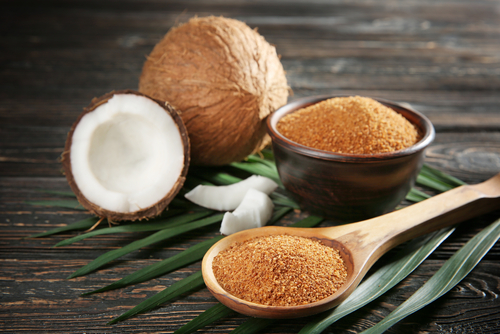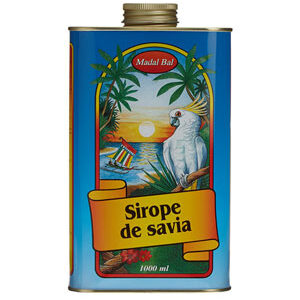Description
The great advantage of this sugar is that it is an integral product that, when produced according to simple traditional methods, preserves practically all its vitamins and minerals, which are not few.
This makes it a much superior sweetener to white sugar (lacking in vital nutrients), as it contains minerals such as phosphorus, magnesium or zinc, as well as B vitamins.
Coconut sugar has a low glycemic index (between 35 and 54, according to studies), only improved by the agave syrup (30) or the exceptional stevia (0). This quality supports a regular supply of energy, which improves brain function, reduces inflammation and prevents unpleasant energy crashes (as long as it is consumed in small quantities and, if possible, together with other foods rich in fiber).
A good part of its advantages are due to the presence of inulin, which slows down the absorption of glucose, reduces cholesterol levels, favors the development of beneficial intestinal flora and improves the absorption of minerals and vitamins. But its fructose levels are high, so it is not a food that should be abused.
In the kitchen it is very versatile. It can be caramelized, like sugar, and has the same sweetening power as whole sugar (which it is very similar to), so that if we want to convert a recipe we only have to exchange the same amount of whole sugar for coconut.
NUTRITIONAL PROPERTIES
But coconut sugar doesn't just add calories. It is also rich in beneficial substances, such as minerals and vitamins of group B.
100 g of coconut sugar contain:
Calories: 400
Sucrose: 71%
Fructose: 3%
Glucose: 3%
Inulin: 4.3 g
Zinc: 92 mcg
Iron: 2.1 mg
Polyphenols: 150 mg
Copper: 2.3 mg
Potassium: 715 mg





